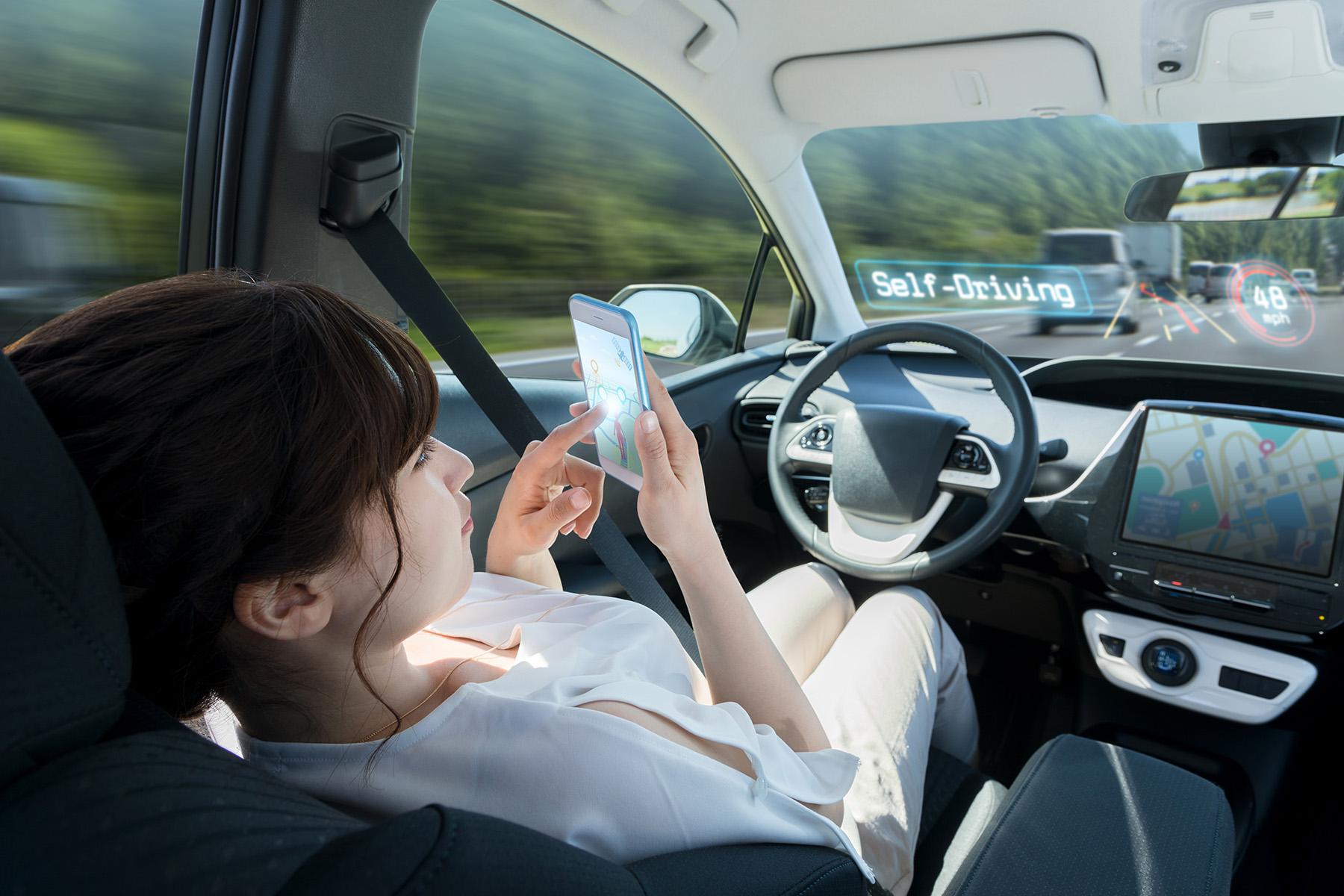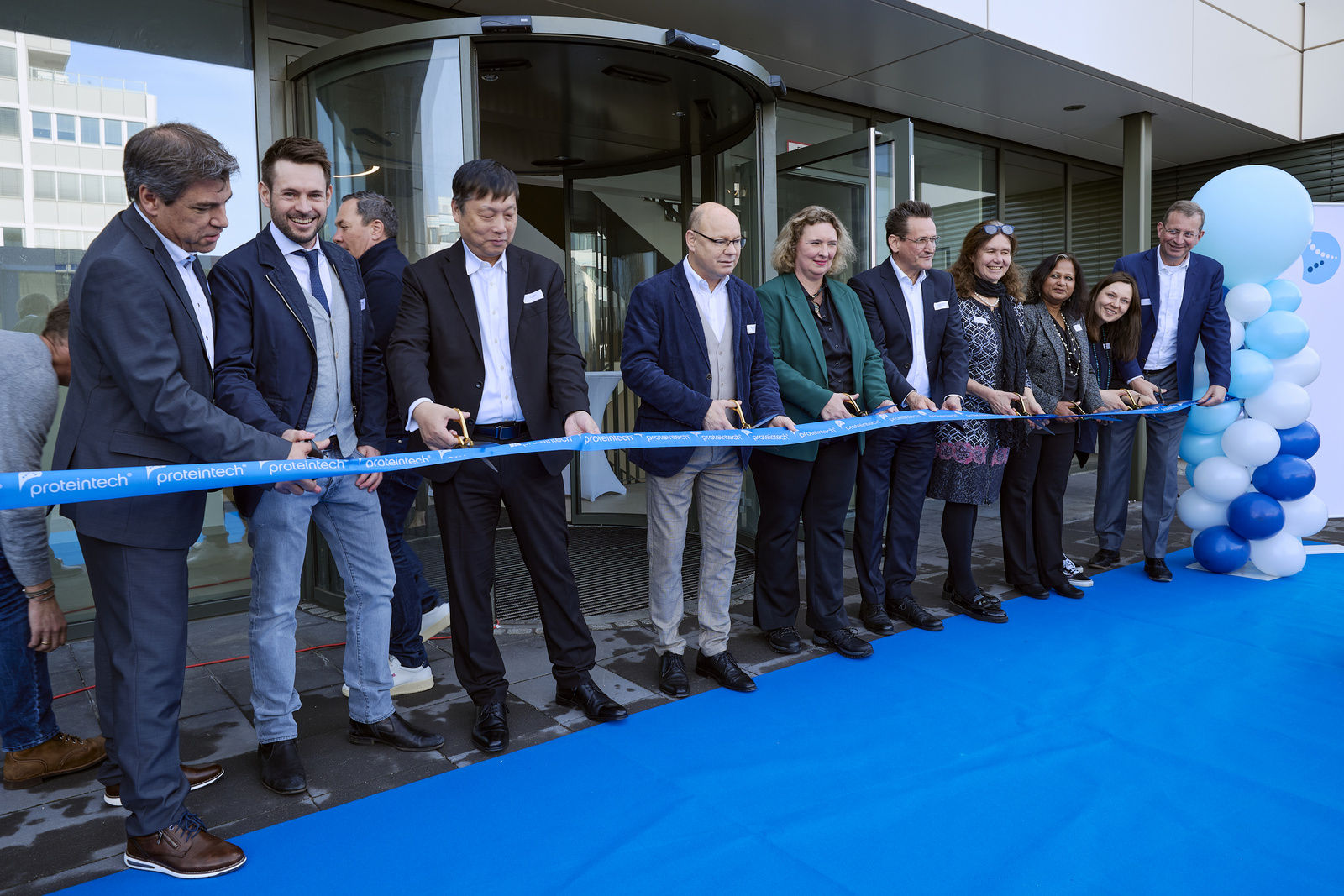- Startseite -
- Digital Bavaria -
- Blog #bytevaria - Mobility of the future: Bavaria is already travelling ahead
Mobility of the future: Bavaria is already travelling ahead
When it comes to mobility, we are facing similar changes to those people faced 125 years ago when the car was invented. Having one's own car was a symbol of freedom and independence and an expression of social status for a long time. This is fundamentally changing at the moment. Especially when it comes to the actual purpose of the car, namely to get from one place to another comfortably and quickly. Sustainability is also playing an increasingly important part.

As a result digital offers, for example ride-sharing, are already changing mobility today. Autonomous shuttles are already being tested, and it won’t be long before they are used on public roads. Even air taxis are being intensively researched, so airborne passenger transport could soon no longer be a problem in public transport, in purely technical terms.
Collaboration between the industry’s pioneers is particularly being promoted in Bavaria to further promote the mobility sector’s digital transformation. It's not just about the car, the train or the plane – mobility is going to be revolutionised by the use of new technologies. Well-known companies’ relevant accelerators are playing a prominent role in this.
In the fast lane: Bavarian accelerators for mobility start-ups
- BMW start-up garage
As a "Venture Client", BMW cooperates with selected mobility start-ups even before their product is ready for the market. The respective product is developed to market maturity by collaborating directly on real projects and tested in practice together with a BMW department. The car manufacturer doesn’t just act as a mentor but also as a paying customer. - MAN Impact Accelerator
The commercial vehicle manufacturer supports start-ups working on innovations for the transport and logistics sector to find sustainable solutions to social and environmental challenges. MAN doesn’t just provide more than 300 well-known mentors but also access to suitable investors and many useful MAN resources. - Volkswagen Data Lab Munich
In its Start-up Space Programme, the Munich-based Data Lab offers tech founders the opportunity to test and develop their digital applications quickly and effectively within the framework of a real VW project. Participants in the programme have access to the entire corporate infrastructure such as databases, tools and expertise. - ESA Business Incubator Centre Bavaria
The ESA BIC Bavaria offers start-ups support and technical expertise in many areas relevant to the mobility industry. These include satellite navigation, data systems, robotics and software systems. In addition to its head office in Oberpfaffenhofen, ESA BIC Bavaria also operates branch offices in Nuremberg, Berchtesgadener Land and Ottobrunn. - Digital Hub Mobility
Companies from the mobility sector and technology companies combine their forces in the Digital Hub Mobility. The aim is to strengthen the location in the field of mobility and to sustainably promote innovation. Industry-wide mobility solutions are being developed in collaboration with start-ups and science to achieve this. The Digital Hub Mobility is located at the UnternehmerTUM centre for innovation, founders and start-ups. The network of 12 Digital Hubs in total throughout Germany is a Federal Government initiative, in addition to the Mobility Hub, Bavaria also has the hub for Digital Health in Nuremberg.
Attractive location for the mobility of the future
It's not surprising that the excellent location conditions in Bavaria are attracting many start-ups in the mobility sector. A disruptive approach is being taken by the highly innovative newcomer Lilium. Its electrically powered aircraft, which can take off and land vertically, could turn the vision of the air taxi into reality in the near future.
Our CEO & co-founder, @DanielWiegand_ presenting the Lilium Jet, the world’s first all-electric vertical take-off and landing jet to the German Chancellor, Angela Merkel & members of the German Government #digitalgipfel2018 #bundeskanzler @Markus_Soeder @peteraltmaier @DoroBaer pic.twitter.com/lwQSBFqyrQ
— Lilium (@Lilium) 4. Dezember 2018
The team from WARR Hyperloop at the Technical University of Munich is no less innovative having won the official SpaceX Hyperloop Pod Competition for the third time in a row. Another Bavarian player in the field of mobility is the EmQopter start-up from Würzburg. The founders developed the first permissible drone that can carry unmanned loads from A to B. EmQuopter's portfolio also includes artificial intelligence sensory modules, a drone with robotic arm and aircraft for research purposes.

Best prospects for companies from all over the world
It’s not just local start-ups who feel at home in the Bavarian mobility ecosystem though. The Mobility hub also holds a strong appeal for international players. In early 2018, for example, the Californian Uber rival Lyft opened its first European branch office in Munich to focus on Simultaneous Localization and Mapping (SLAM) technology. Even the Chinese electric car start-up Nio has recently had its vehicles designed in Bavaria. At Nio, they are convinced that Munich is the best location for automotive designers, that it offers very good access to the supplier industry and also impresses with a high quality of life. Nio's Chinese competitors FAW and Byton are of the same opinion and are backing Bavaria as an innovation location for the mobility of the future: FAW just opened an office in WeWork's co-working offices in Munich in November, and Byton has been relying on Design Made in Bavaria from Ismaning since 2017. Another new entry from abroad is Zenuity, a joint venture between Volvo and Autoliv that develops software for driver assistance systems and automated driving functions.

How Companies are Mastering Today’s Challenges with Resilience

From hydrogen to chip design – how cross-industry innovation creates business opportunities for foreign investors in Bavaria
